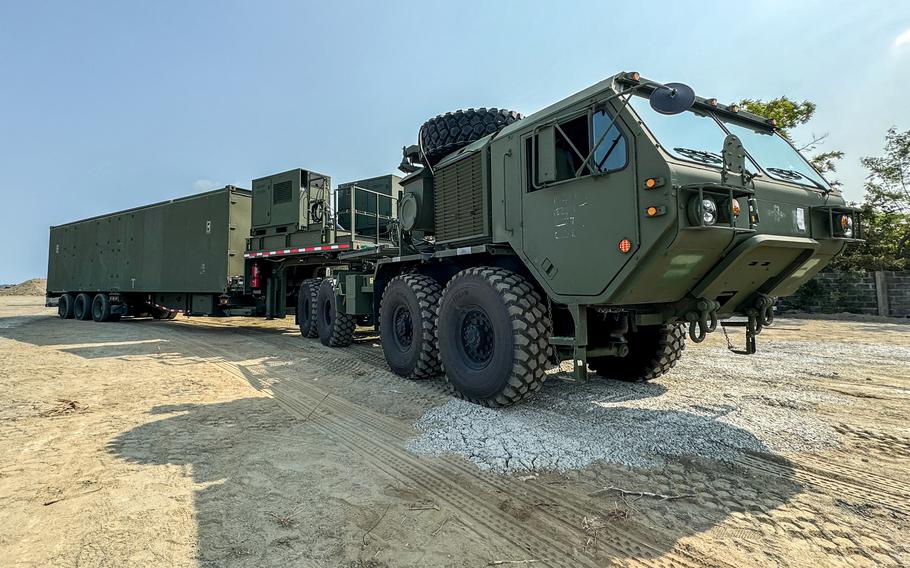
The Typhoon launcher, designed to fire SM-6 and Tomahawk missiles, was deployed to the Philippines from Joint Base Lewis-McChord, Wash., by the 1st Multi-Domain Task Force. (U.S. Army)
The U.S. Army has temporarily deployed its newest missile launcher to the Philippines for training purposes amid ongoing tensions over Beijing’s claims to Taiwan and the South China Sea.
The Typhoon launcher, designed to fire SM-6 and Tomahawk missiles, was deployed last week from Joint Base Lewis-McChord, Wash., by the 1st Multi-Domain Task Force, U.S. Army Pacific said in a news release Monday.
The launcher is in the islands for the Salaknib exercise, which began April 8 and wraps up Friday. Six-hundred U.S. troops are training with 1,000 of their Filipino counterparts, according to the U.S. Embassy in Manila.
The exercise includes “multi-domain operations, infantry operations, urban breaching, jungle operations, joint forcible entry, air and direct assaults, javelin, and anti-tank operations,” U.S. Army Pacific said in an April 2 statement.
Washington and allies Tokyo and Manila and Japan are gearing up for a potential fight with Beijing, which boasts a formidable missile force, around Taiwan or in the South China Sea.
The Typhoon deployment was flagged by U.S. Army Pacific commander Gen. Charles Flynn, who told reporters April 5 in Tokyo that the Army would field newly developed missiles in the Indo-Pacific region this year.
“I’m not going to discuss what system and I’m not going to say where and when,” he said. “I’m just saying that there will be a long-range precision fires capability.”
The Typhoon has a “hypersonic capability,” Flynn said, referring to missiles that can travel faster than five times the speed of sound.
It took 15 hours to fly the Typhoon launcher to the Philippines aboard an Air Force C-17 Globemaster III assigned to the 62nd Airlift Wing at Lewis-McChord, according to the Army release.
A full Typhoon battery includes an operations center, four launchers, prime movers and modified trailers, the release said, without specifying how much equipment was sent to Salaknib.
The deployment marks a significant step in America’s partnership with the Philippines, Brig. Gen. Bernard Harrington, commander of the 1st Multi-Domain Task Force, said in the release.
“We’re grateful to our partners in the Armed Forces of the Philippines and we’re excited to expand our security cooperation as we bring this new capability to Luzon,” he said. “This creates several new collaboration opportunities for our bilateral training and readiness, we look forward to growing together.”